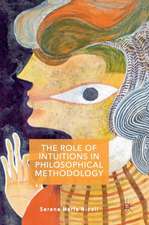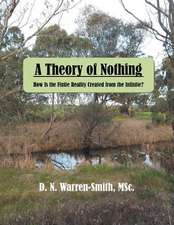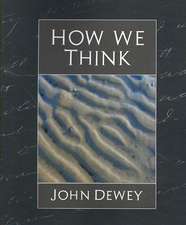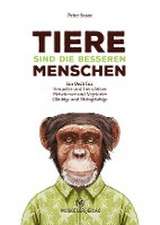Reconstruction in Philosophy
Autor John Deweyen Limba Engleză Paperback – 9 aug 2020
| Toate formatele și edițiile | Preț | Express |
|---|---|---|
| Paperback (4) | 62.85 lei 3-5 săpt. | |
| Dover Publications – 31 mai 2004 | 62.85 lei 3-5 săpt. | |
| Bibliotech Press – 9 aug 2020 | 99.63 lei 6-8 săpt. | |
| COSIMO CLASSICS – 30 sep 2008 | 111.67 lei 6-8 săpt. | |
| Beacon Press – 31 mai 1971 | 177.73 lei 6-8 săpt. | |
| Hardback (1) | 190.85 lei 6-8 săpt. | |
| Bibliotech Press – 9 aug 2020 | 190.85 lei 6-8 săpt. |
Preț: 99.63 lei
Nou
Puncte Express: 149
Preț estimativ în valută:
19.07€ • 19.79$ • 15.90£
19.07€ • 19.79$ • 15.90£
Carte tipărită la comandă
Livrare economică 22 martie-05 aprilie
Preluare comenzi: 021 569.72.76
Specificații
ISBN-13: 9781647999094
ISBN-10: 164799909X
Pagini: 166
Dimensiuni: 152 x 229 x 10 mm
Greutate: 0.21 kg
Editura: Bibliotech Press
ISBN-10: 164799909X
Pagini: 166
Dimensiuni: 152 x 229 x 10 mm
Greutate: 0.21 kg
Editura: Bibliotech Press
Notă biografică
John Dewey (FAA October 20, 1859 ߝ June 1, 1952) was an American philosopher, psychologist, and educational reformer whose ideas have been influential in education and social reform. Dewey was an important early developer of the philosophy of pragmatism and one of the founders of functional psychology. He was a major representative of progressive education and liberalism. Although Dewey is known best for his publications concerning education, he also wrote about many other topics, including experience, nature, art, logic, inquiry, democracy, and ethics. In his advocacy of democracy, Dewey considered two fundamental elements—schools and civil society—as being major topics needing attention and reconstruction to encourage experimental intelligence and plurality.
Recenzii
"It was with this book that Dewey fully launched his campaign for experimental philosophy." - The New Republic
Textul de pe ultima copertă
The basic postulate of the text: namely, that the distinctive office, problems and subjectmatter of philosophy grow out of stresses and strains in the community life in which a given form of philosophy arises, and that its specific problems vary with the changes in human life that are always going on.


















